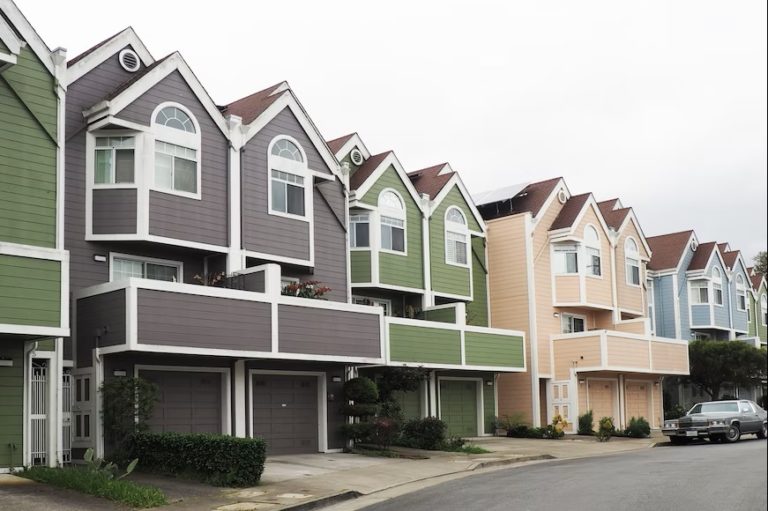Hello, readers! This is the first of an on-going series where our Marketing Coordinator and Strategist, Morgan Aiello, will sit down with Team Lead, David Tapper or other industry experts; covering hot Real Estate questions and topics . Do you have something you would like to know more about? Drop us a line here. Now on with the interview:
Morgan: Hi, Dave. How has the Real Estate business been recently?
Dave: Well, 2021 was a great year for both Buyers and Sellers. Sellers were able to capitalize on the low inventory, commanding great prices. For Buyers, they were able to secure loans at historically low rates– a great combination resulting in success for many across the industry.
Morgan: We hear there is low-inventory all across San Mateo County. How low is low?
Dave: Here we are in the third week of January in 2022, and you can count the listings of single family homes, in some cities, on one hand; that’s pretty low. We expect inventory to pick up probably right after the Super Bowl– we should start to see the gradual rise now.
Morgan: In general what does low-inventory mean to a potential homeowner or investor holding onto property during this time?
Dave: This is a great time for a homeowner to capitalize on the lack of inventory, but there are other mitigating factors; The Dow for instance. Before the pandemic hit it was at 27,500, it went down to a low of 18,200 before jumping overnight to 19,300 and from there it’s gone up in the high 36,000 figures. That translates into consumer confidence– coupled with the low interest rates; it’s an opportune time.
Morgan: But wait a second, What about the “Great California Exodus”, “The Great California Migration” or whatever you want to call it. If people were leaving wouldn’t that mean more homes on the market, not less?
Dave: Ha! That’s a great question. Well, we have heard about Oracle, Hewlett-Packard and Tesla all changing where their corporations are headquartered, with uncertainty as to how many offices and employees will remain in the Bay Area. But, we are seeing ten-fold the amount of buyers getting into our market. The reason they’re able to enter now are those low interest rates. You know, no one has a crystal ball, but when recessions have hit in the past, trendy cities are often hit hardest. The Bay Area offers something unique in the fact it has many recession-proof qualities; top of those qualities being its geographical location. It has always been, and will continue to be a desirable place to live, regardless of the employment offerings, which may grow to new virtual capacities we have yet to see. The COVID-19 pandemic has only cemented the biotech footprint here on the San Francisco Peninsula. You have Rouche/Genentech, Amgen, AstraZeneca and Abbvie in South San Francisco, reaching down to the bay-adjacent Gilead campus in Foster City. Tech and tech-centered fields follow the venture capitalist money and the epicenter of that still sits on Sand Hill Road in Palo Alto and the greater Bay Area in general. There are always uncertainties, but in my biased opinion the Bay Area offers arguably the best weather, communities, dining, diversity, culture and sports teams (go Niners and Warriors!).
Morgan: What if you are thinking about leaving the Peninsula behind and calling a new city, state, or country your home? Is now a good time to leave? Assuming you own a home or condo?
Dave: Like I mentioned before, whether you own a condo or single family home here in the Bay Area, it’s a great time to make a move; you’re going to profit from the low inventory and low interest rates. The home values in places like the San Francisco Bay Area, Manhattan, and Hong Kong will yield you sale prices high enough to buy you much more home elsewhere. Additionally, if you are thinking about leaving the Bay Area, I have a network of top-tier agents, both nationally and overseas, that I will interview and vet prior to referring. These agents should be an advocate for clients; the same as me. It’s about protecting their interests and providing knowledge and expertise in their area.
Morgan: So, if you were thinking about upgrading your home right now is it the right time to sell and buy up?
Dave: Great question. It depends on your situation. It’s a great time to buy up, due to the low interest rates. When you hit historic lows, there’s only one place for money to go and that’s up. Last year I had some clients that were getting 2.5% to 2.75% interest rates, and now you can’t even get that– it’s closer to 3% – 3.125%. So, it’s tied to money– if you can capitalize and move up right now, and also lock in a low interest rate, then it is a good time for you. As far as upgrading your home, if you wait to upgrade, it’s only going to cost you more money later. The labor will cost more, materials will cost more and so on.
Morgan: What about if you are an investor and you have a property that you are leaving vacant to see appreciation, or you have tenants and are on the fence about selling? Is now the time?
Dave: Pre-pandemic we were certainly seeing much more of this here on the Peninsula. A stable housing market where an investor could essentially park their money and see the appreciation climb, oftentimes without ever renting out the home. We are now seeing less of this. As I previously mentioned there are more local buyers entering our market and that pushes the investors out of competition in some cases. There was a huge gain in the stock market last year, and cryptocurrencies as well; both of which generated a lot of newer wealth for local homebuyers and larger cash offers than ever before.
Morgan: When do you foresee inventory getting better? Is it going to get worse before it gets better? What would be the causes and effects? Interest rates? Inflation? Exodus?
Dave: I’m not an economist or financial advisor; I’m uncertain in the direction of inflation. If it does go up, the Fed generally tries to course-correct by increasing interest rates. This means the cost of money will rise, removing some buyers from the market. The late Real Estate Economist, Carole Rodoni, said for every 1% interest rates go up, buyers lose about 10% of their buying power. If that holds true, sellers who own a 2 million dollar home can now only afford 1.8 million. There’s a fine line there: should sellers decide now is a good time to put their home on the market while buyers have more buying power, or wait? Many may decide to jump on selling because they fear missing the wave.
Morgan: If there is some factor that causes inventory to increase, do you foresee the market being flooded with short sales or foreclosures like we saw during the 2008 Financial Crisis or “Great Recession” ?
Dave: I mentioned the rates being increased by the Fed– this would likely spark an increase in inventory and a decrease in demand; resulting in some housing market stabilization, or potentially a slight decrease in value. In the last decade so much value and equity has built up in Bay Area homes, I don’t see it causing the short sales or foreclosures like we saw in the crash of 2008.
Thanks for your interest and please drop us a line for future topics you’d like to see covered: here.
We [Team Tapper] ask and require that all posters & commentators warrant all material they post as original and non-defamatory. We assume no responsibility for accuracy of any and all information found on our websites. All information is deemed reliable but not guaranteed and should be personally verified through personal inspection by and/or with appropriate professionals. We also ask that posters and commentators provide information that is both as relevant and as reliable as possible.



